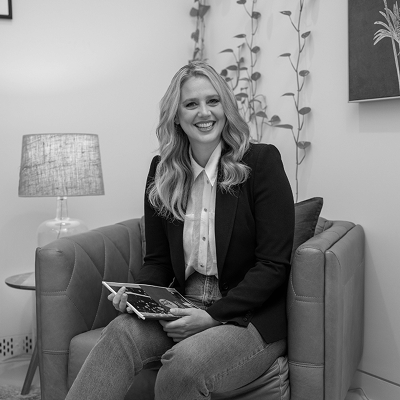
ASKING FOR A FRIEND
How do I deal with a client who is treating me badly?
ASKING FOR A FRIEND - QUESTION
When clients cross the line with rude behaviour, after-hours calls, and constant criticism, what can you actually do about it? Jasmin Bedir, CEO of Innocean Australia, and Tara Hurster, psychologist and founder of The TARA Clinic, share battle-tested strategies for dealing with clients who treat you badly. From getting management support to understanding the psychology behind difficult behaviour, they cover everything from documentation tactics to knowing when empathy has its limits. Essential advice for anyone wondering how to handle toxic client relationships without sacrificing their sanity or career.
When Clients Cross the Line: Your Survival Guide
We've all been there: that one client who makes your stomach drop when their name appears on your phone. The one who calls after hours, never says thanks, and somehow always finds fault with your work. If you're dealing with a client who is treating you badly, you're not alone, and more importantly, you don't have to put up with it.
This question was answered by Jasmin Bedir, CEO of Innocean Australia, and Tara Hurster, psychologist and founder of The TARA Clinic. Andy Wright hosted the discussion, bringing his experience as founder of Never Not Creative and CEO of Streamtime to explore practical solutions for toxic client relationships.
The Hierarchy of Protection
Jasmin makes a crucial point about workplace responsibility: "There's always a hierarchy in terms of the more junior you are, the least you need to be in the line of fire. That's why people above you are being paid to do their jobs and their job is to protect you."
Your line manager should be your first port of call. It's literally their job to shield you from unreasonable client behaviour and work with you on strategies to cope better. If they're not doing this, that's a management problem, not a you problem.
When Money Complicates Things
Sometimes the situation gets murky when difficult clients are also big clients. As Jasmin acknowledges: "Let's just say imagine you're an agency, a small agency and this is your biggest client and that client also pays a lot of salary, so you can then imagine that management finds it particularly hard to maybe pin that client down and have difficult conversations."
But here's the thing: "Clients get the agencies and the people they deserve usually." If a client is consistently horrible, word gets around, and eventually they'll struggle to find good people willing to work with them.
The Human Behind the Behaviour
Before writing someone off completely, consider what might be driving their behaviour. As Jasmin suggests: "Sometimes just turning back on them and go hey you seem a bit stressed and you know like erratic and you know combative like are you okay."
Jasmin shares a revealing example: "I had one of those situations and it turns down that that specific client had a full relationship back down at home going through a horrible period of time where the partner with the kids had moved out etc and he was literally just taking it out on the relevant team member."
Understanding doesn't mean accepting abuse, but sometimes a bit of empathy can transform the relationship.
Document Everything
Tara emphasises the importance of keeping records: "Document everything so if you document everything then it also helps to show your manager a bit of a timeline."
She uses the analogy of a frog in boiling water: if the temperature rises slowly, you might not notice how bad things have become. Documentation helps you and your manager see patterns and escalation over time.
Drawing the Line
Tara is clear about boundaries: "There is no time violence is always a choice and violence is both through power and control financial, physical violence emotional and verbal abuse and you know in all of those situations it's always a choice."
It doesn't matter what's happening in someone's personal life. As she puts it: "It doesn't matter what's going on in someone else's background it's always a choice."
The Portfolio Solution
If you're stuck with a difficult client because they represent a huge chunk of your agency's income, Tara suggests: "If the person that's paying the most of your salary is one client then diversifying your portfolio is a really really valuable thing to start looking at doing so that you don't feel tied to an unhealthy situation."
This gives you options and reduces the power imbalance that keeps toxic relationships alive.
Never Go It Alone
The key message throughout this discussion is simple: you shouldn't have to handle difficult clients on your own. Whether it's getting support from your line manager, documenting incidents, or having honest conversations about what's really going on, there are always steps you can take.
Remember, you deserve to be treated with respect at work. If a client is consistently treating you badly, that's not a reflection of your worth or your work quality. It's a problem that needs solving, and you have every right to ask for help in solving it.
our guests
Industry Leader

Jasmin Bedir
Innocean
Mental Health Expert

Tara Hurster
Host

